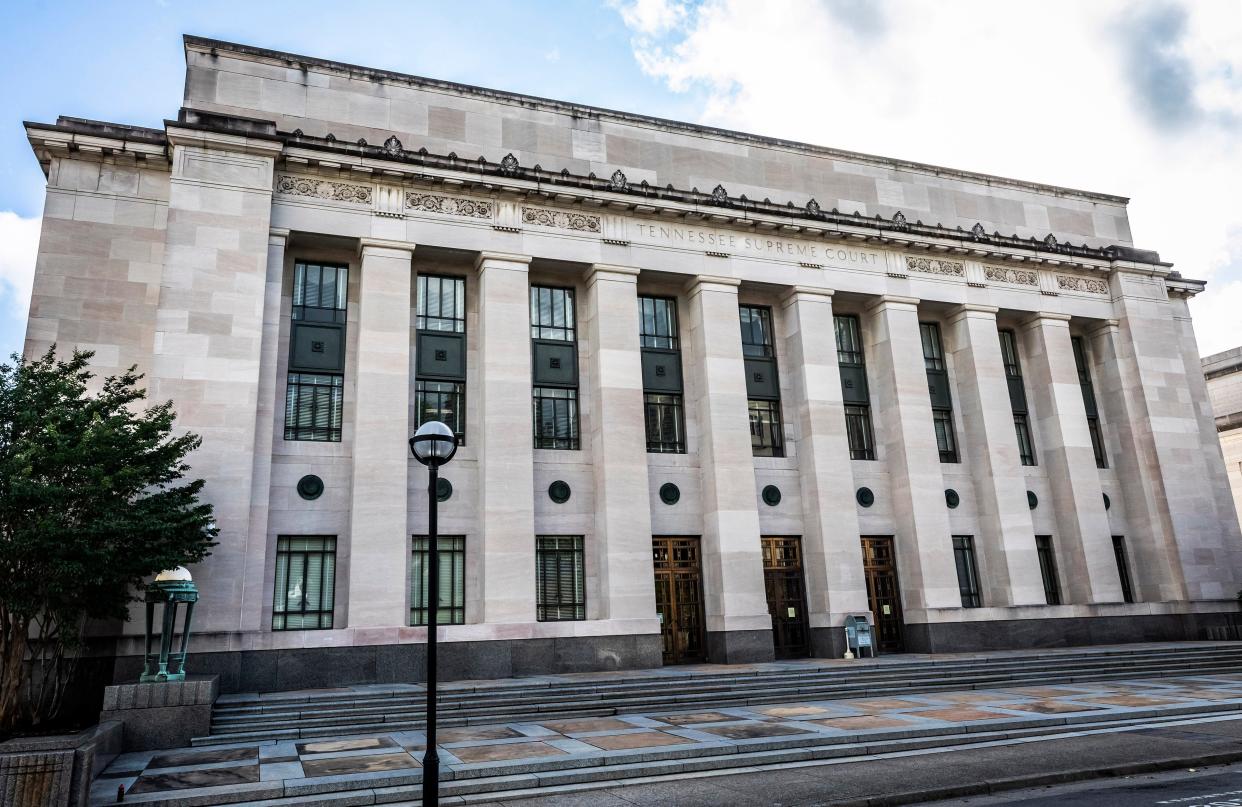Tennessee Supreme Court hears arguments in felon voter rights restoration case

The Tennessee Supreme Court on Wednesday heard arguments in a voting rights case where plaintiffs allege the state illegally blocked a man from registering to vote over a previous felony conviction in Virginia, even though his voting rights had been restored there.
Ernest Falls, who was granted clemency and had his voting rights restored for a prior conviction in Virginia, moved to Tennessee and tried to register to vote in Grainger County in 2020. Tennessee officials said Falls failed to prove he had paid all court costs and restitution required by the state of his conviction, which the state requires of people seeking voter restoration following a Tennessee felony conviction.
But Falls never owed court costs or restitution in his Virginia case, and the clemency grant fully restored his right to vote in Virginia.
"A fundamental bedrock interest in this case is that a person who has the fundamental right to vote does not need his rights restored," Falls' attorney Bill Harbison argued before the Tennessee Supreme Court on Wednesday.
Assistant Attorney General Alex Rieger on Wednesday argued court precedent allows Tennessee to enact certain requirements, such as proving any court costs have been fulfilled in another state, of anyone convicted of certain felonies, even if they've had their rights fully restored in another state.
"The state's position is straightforward here," Rieger said.
Falls and Artie Bledsoe sued Tennessee in 2020 in an attempt to vote in local primary elections. A Davidson County judge previously ruled in favor of the state, finding "Tennessee law does not require that Tennessee reach the same result" as other states' decisions on voter restoration.
Tennessee has historically had one of the country's highest rates of disenfranchised voters, with more than 8% of the state's eligible voters barred from registering to vote due to a felony conviction, per a 2016 study from the Sentencing Project.
Felon voter rights:Tennessee's voting rights restoration process for felons needs to be fixed, lawsuit claims
The state faces another ongoing voter restoration legal challenge from people convicted of Tennessee felonies. The lawsuit, filed in federal court, argues the state's system for voter restoration is so "inaccessible, opaque and error-ridden" that Tennessee officials fail to implement it uniformly. In an updated complaint filed this week, plaintiffs alleged the "unequal, scattershot system" opens potential voters up for harm and possible prosecution.
In another recent high-profile case, a Memphis woman was charged and convicted of an illegal voting felony after a probation officer incorrectly completed a rights restoration certificate. The charges were later dropped earlier this year.
More:Illegal voting charges against Pamela Moses dropped; activist remains banned from registering
Reporter Mariah Timms contributed to this report.
Reach Melissa Brown at mabrown@tennessean.com.
This article originally appeared on Nashville Tennessean: Tennessee Supreme Court hears out-of-state felon voting rights case

